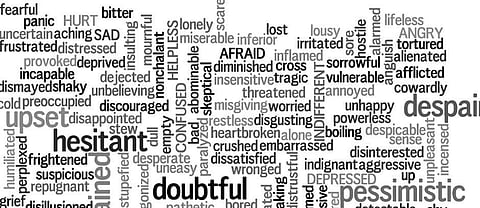

Some words in English are used synonymously but they are different in meanings. For example, if you refer to a Thesaurus to know the synonyms of the word ‘vacation’, you get the following words: holiday, holidays, trip, tour, break, mini-break, stopover, day off, recess, adjournment, furlough, rest, respite, leave of absence, leave, time off, hols, vac, staycation. These words have different meanings and cannot always be used interchangeably.
What is the difference in meaning between ‘vacation’ and ‘holidays’? The term ‘vacation’ is used mostly in American English whereas ‘holiday’ is used in British English. In India, we use the terms interchangeably. Look at these examples:
-Some students are interested in working during vacation.
-During my summer vacation, I am taking my family to Ooty.
The expression ‘going on holiday’ is used in British English and its equivalent ‘going on vacation’ in American English.
Is there a difference in meaning between ‘holiday’ and ‘holidays’?
‘Holiday’ can be used as a countable an uncountable noun. As a singular noun, it refers to a specific day or event. Examples:
-Yesterday was a public holiday and so we went to a resort.
-I am very tired after the trip. I need a holiday.
In American English and in British English ‘holiday’ refers to one day in particular, like the twenty fifth of December or the first of May. When it is used as an uncountable noun, ‘holiday’, the British English equivalent of the American English term ‘vacation’, refers to a period of time which is more than one day. Look at these examples:
-I think you are entitled to one month’s paid holiday.
-You will get a four-day holiday next week.
-She is on holiday in Australia.
Can ‘vacation’ and ‘holiday’ be used as verbs?
Yes, both the words can be used as verbs. Here are example sentences:
-The Minister is holidaying in Switzerland
-Currently they are vacationing in Hong Kong.
-The term ‘staycation’ refers to a holiday spent at home or in a local place.
-They had a wonderful staycation.
-They are planning to have a perfect staycation honeymoon.
What is the difference in meaning between ‘honorarium’ and ‘salary’?
‘Honorarium’ is not synonymous with ‘salary’. It is a fee given to someone for services rendered, especially services rendered by professionals on a voluntary basis. It is called an ex gratia payment because the person who gives a fee to a service provider is not legally bound to make payment to the person for their services for which fees are not required. In other words, an honorarium is given to someone for doing something which is not a normal part of their job.
-I received an honorarium of five thousand rupees for a guest lecture.
-It is not fair to demand an honorarium when you are invited to give a talk.
‘Salary’ is a fixed amount of money agreed by both the employer and the employee and is paid to the employee every month.
-He is ready to accept a lower salary provided he is allowed to work only four days a week.
-I am not ready to work for them even if they are going to raise my salary.
What is the difference between ‘pupil’ and ‘student’?
When I was a student, I used to hear the term ‘pupil’ used by t-eachers and others in schools. Now I don’t hear anyone use the term. It means it has become an outdated term. In older British usage, the word ‘pupil’ was used to refer to youth studying in schools and the word ‘student’ was used to refer to youth studying in colleges/universities. Nowadays, the term ‘student’ is commonly used to refer to those who study in schools and colleges.
‘Pupil’ is used to refer to a person who is under the direct supervision of a tutor because the needs special attention. Some musicians and painters have pupils. Examples:
-The guide should be slightly in front whilst the blind pupil holds the guide’s arm lightly just above the elbow. (BNC)
-I have five pupils. I teach them how to play the guitar.
